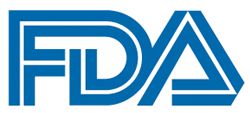FDA Places Partial Clinical Holds on 3 Nivolumab Myeloma Trials
Partial clinical holds have been placed on 3 trials by the FDA, which are assessing nivolumab (Opdivo)-based combinations in patients with relapsed/refractory multiple myeloma.

Partial clinical holds have been placed on 3 trials by the FDA, which are assessing nivolumab (Opdivo)-based combinations in patients with relapsed/refractory multiple myeloma.
The phase III CheckMate-602, phase I CheckMate-039, and phase II CA204142 are affected by the decision. Enrolled patients who are experiencing clinical benefit can continue treatment, but no new patients will be allowed to join the trials for the time being.
In a press release, Bristol-Myers Squibb, the manufacturer of nivolumab, noted that other studies of nivolumab outside of multiple myeloma will continue as planned.
The FDA made the move based on safety concerns identified in two clinical trials evaluating pembrolizumab (Keytruda), another antiPD-1 agent, in combination with dexamethasone and lenalidomide (Revlimid) or pomalidomide (Pomalyst) for the treatment of patients with multiple myeloma.
The agency ordered discontinuation of KEYNOTE-183 and KEYNOTE-185 on July 3, 2017, because interim results showed that pembrolizumab was associated with an increased risk for death.1Merck, the manufacturer of pembrolizumab, had suspended new enrollment to these trials on June 12, 2017, following the recommendation of an external data monitoring committee.
Patients in both KEYNOTE trials were assigned to 200 mg of pembrolizumab every 3 weeks.
In KEYNOTE-183 (N = 249), there were 29 deaths in the pembrolizumab arm versus 21 deaths in the control arm at a median follow-up of 8.1 months. The hazard ratio (HR) for overall survival (OS) for the pembrolizumab group compared with the control arm was 1.61 (95% CI, 0.91-2.85), translating into a >50% increase in the relative risk of death.
There were 301 patients included in the safety and efficacy analysis in KEYNOTE-185. At a median follow-up of 6.6 months there were 19 deaths in the pembrolizumab group compared with 9 in the control arm (HR for OS, 2.06; 95% CI, 0.93-4.55). The relative risk of death in the pembrolizumab arm was more than double that of the control group.
CheckMate-602 is an open-label, randomized phase III trial evaluating combinations of nivolumab, elotuzumab (Empliciti), pomalidomide, and dexamethasone for patients with relapsed/refractory multiple myeloma.
CheckMate-039 is a study to establish the tolerability of nivolumab and the combination of nivolumab and daratumumab (Darzalex), with or without pomalidomide and dexamethasone in patients with relapsed/refractory multiple myeloma.
CA204142 is assessing the safety and efficacy of elotuzumab in combination with pomalidomide and low-dose dexamethasone versus elotuzumab in combination with nivolumab for patients with multiple myeloma relapsed or refractory to prior treatment with lenalidomide
Earlier this week, the FDA put clinical holds on a pair of phase I trials investigating a gene-edited allogeneic CAR T-cell (UCART) therapy called UCART123 after 1 patient died and another experienced a serious adverse event.
A 78-year-old man being treated for blastic plasmacytoid dendritic cell neoplasm (BPDCN) died after experiencing cytokine release syndrome (CRS). A 58-year-old woman being treated for acute myeloid leukemia (AML) also developed CRS, although her condition resolved.
A data safety monitoring board recommended lowering the dose of UCART123 cells, but the FDA ordered the trials shut down. Both patients were the first to be treated in their respective trials.
Paris-based biopharmaceutical company Cellectis is developing UCART123 as a treatment for BPDCN and AML. The company said in a press release that it is working with the FDA to resume the trials with an amended protocol, including a reduced dose of UCART123 cells.
Reference:
FDA Alerts Healthcare Professionals and Oncology Clinical Investigators about Two Clinical Trials on Hold Evaluating KEYTRUDA® (pembrolizumab) in Patients with Multiple Myeloma. https://www.fda.gov/Drugs/DrugSafety/ucm574305.htm. Accessed August 31, 2017.